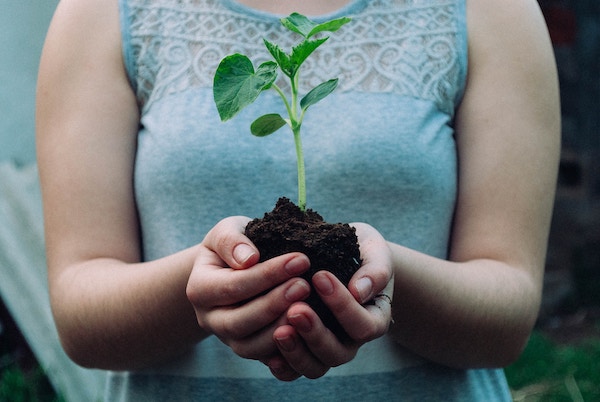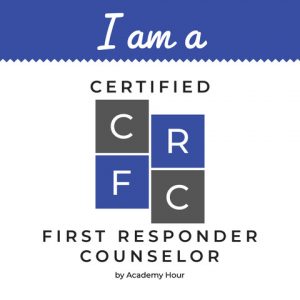A lot of people approach happiness like they’re tracking an Amazon package and it often sounds like, “I’ll be happy when…” They order it—by accomplishing some big goal or reaching a particular milestone—and then sit around impatiently waiting for it to arrive. Happiness, in their minds, has a delivery date. But what happens when the expected delivery day comes and goes, and happiness is nowhere to be found? Frustration, disappointment, and sometimes even despair are often the result.
Here’s the truth: your brain isn’t designed to keep you happy, it’s designed to keep you alive. Happiness isn’t something you wait around for; it’s something you actively cultivate. It’s a skill, not a product. And it’s definitely not guaranteed to show up at your doorstep just because you think it “should.”
The reason so many of us struggle with happiness is precisely this misconception. We see happiness as external—a condition dependent on things outside our control. A raise at work, a romantic relationship, a vacation, a certain number on the scale—each of these things gets labeled as “the thing” that will finally unlock our happiness.
But research and experience show time and again that happiness derived purely from external events is fleeting. This is due to something called hedonic adaptation – we get used to the boost pretty quickly then – as the saying goes – wherever you go, there you are. Once the novelty wears off, we’re left waiting again, clicking “refresh” on the tracking number for our next happiness delivery.
Happiness as a Skill
What if happiness isn’t about the moments that hit you out of nowhere but rather about how well you’ve trained yourself to notice, savor, and create moments of joy—even in difficult times?
Psychologically speaking, happiness is a set of cognitive and emotional skills. It involves how we perceive our experiences, how we interpret setbacks, and how we intentionally move through our lives. It includes gratitude, perspective-shifting, self-compassion, emotional resilience, and mindfulness—all habits of mind that anyone can develop.
You may be thinking, “Sounds great, but I’m just not a naturally happy person.” And you know what? Neither am I—at least not naturally. Life can feel heavy, complicated, and sometimes overwhelming. But even if you’re not wired for constant joy, you can certainly become someone who experiences happiness more consistently.
Cultivating happiness as a skill means acknowledging that happiness and sadness aren’t mutually exclusive states. It’s entirely possible—and actually quite normal—to hold space for both simultaneously. In my opinion, it’s one of the most beautiful things about the human experience. You can be navigating tough times and still experience pockets of joy. You don’t have to wait until everything is “perfect” or even just “good enough” to feel happier. You just have to learn how to notice and nurture those small pockets when they show up.
Shifting the Happiness Mindset
Part of changing your happiness mindset is shifting from seeing happiness as a reward to seeing it as a practice. Like learning to play an instrument, speak a new language, or master a hobby, it takes repetition and intention. No one picks up a guitar expecting to play perfectly after one lesson. Happiness, similarly, requires consistent practice and patience.
Another mindset shift involves redefining success. Rather than defining success by the arrival of joy itself, success becomes the consistent act of choosing activities, attitudes, and perspectives that are known to foster happiness. That choice is powerful because it puts you back in control.
When Happiness Feels Out of Reach
Sometimes, even knowing all of this, happiness can still feel elusive. There may be physiological reasons, like hormonal changes or medication side effects (something I’ve personally experienced), or life circumstances that genuinely make joy harder to access. At those times, being gentle with yourself becomes especially critical. Happiness might simply look like kindness toward yourself, patience with your emotions, and allowing joy to return at its own pace.
That’s another beautiful truth about cultivating happiness as a skill: you learn not to panic when happiness isn’t immediately present. You trust the process. You trust yourself. You understand that happiness isn’t gone forever—it’s just momentarily out of reach.
The How: Where to Start?
By now, you might be thinking, “Okay, but how exactly do I build these skills?” That’s the part I specialize in. In my workshops, I teach the science-backed skills of happiness cultivation—strategies grounded in psychology and neuroscience that actually make happiness a sustainable part of your life, not something you chase endlessly.
My workshops aren’t about sugar-coating life or forcing positivity. They’re about building real, lasting resilience and emotional agility, so happiness becomes accessible even when life gets challenging.
If you or your team are ready to stop waiting for happiness and start cultivating it intentionally, I’d love to chat. Together, we’ll move happiness from being something you passively hope for to something you actively create.
In the meantime, consider this: Are you still sitting on your metaphorical front porch, waiting impatiently for your happiness package? Or are you ready to build it yourself?




